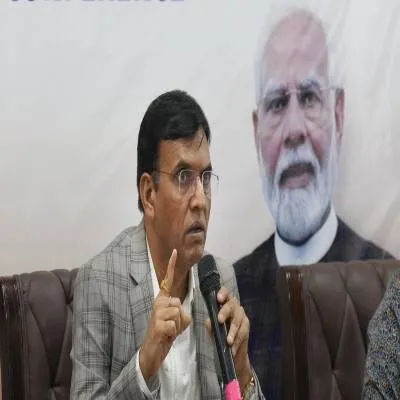Schedule a Call Back
Government Enacts Labour Codes To Overhaul Worker Rights
 The Government on Friday (21 November 2025) notified all four Labour Codes, ushering in major reforms such as universal social security for gig workers, gender pay parity, expanded safety provisions for women, statutory backing for minimum wages, and the introduction of fixed-term employment.
The Government on Friday (21 November 2025) notified all four Labour Codes, ushering in major reforms such as universal social security for gig workers, gender pay parity, expanded safety provisions for women, statutory backing for minimum wages, and the introduction of fixed-term employment.
The four Codes — the Code on Wages (2019), the Industrial Relations Code (2020), the Code on Social Security (2020), and the Occupational Safety, Health and Working Conditions (OSHWC) Code (2020) — replace 29 fragmented laws, many dating back to the 1930s–1950s. Their implementation had been delayed due to continuing protests from trade unions. In a joint statement, ten Central Trade Unions (CTUs) called the reforms “anti-worker and pro-employer”.
Prime Minister Narendra Modi described the new framework as “one of the most comprehensive and progressive labour-oriented reforms since Independence”, providing a foundation for universal social security, timely wages, safer workplaces and better opportunities. He also said the reforms “significantly simplify compliance” and promote ease of doing business.
Union Labour Minister Mansukh Mandaviya said the Codes would formalise employment, strengthen protections and create a safer, globally aligned labour ecosystem. The Ministry has worked closely with State governments, trade unions and employer bodies over three years, with most States publishing draft rules. The Centre continues to support those yet to frame their rules.
Key provisions include enhanced rights for women, permission for night-shift work with safety safeguards, free annual health check-ups for workers over 40 years, pan-India ESIC coverage including hazardous units, and a single registration–licence–return system. Additional measures include a national floor wage, gender-neutral work policies, an inspector-cum-facilitator model, faster dispute resolution through two-member tribunals, and a National Occupational Safety and Health Board to harmonise safety norms. The Codes also streamline contractual employment through fixed-term contracts that offer benefits equivalent to those of permanent staff.
For the first time, gig work, platform work and aggregators have been formally defined in law. An Aadhaar-linked Universal Account Number will provide portability of benefits across States, ensuring access regardless of migration. Plantation workers will also come under the OSHWC Code and the Social Security Code.
With notification now complete, the Government will begin consultations to frame detailed rules and schemes.
Trade unions remain strongly opposed. On Thursday (20 November), CTUs urged Finance Minister Nirmala Sitharaman not to proceed. On Friday, ten unions criticised the Codes’ notification amid rising inflation and unemployment, calling it a “declaration of war” on workers. They accused the Government of attempting to “take the country back to the exploitative era of the master–servant relationship”, and announced protests beginning 26 November. The CTUs previously held a one-day general strike on 9 July.
The Bharatiya Mazdoor Sangh (BMS) welcomed the implementation but urged removal of what it considers anti-worker provisions in the OSHWC and Industrial Relations Codes. The BMS supports the Code on Wages (2019) and the Code on Social Security (2020).
Industry response has been positive. CII Director General Chandrajit Banerjee called the reforms a “historic milestone” and a “transformative leap towards a modern, simplified and future-ready labour ecosystem”.


Subscribe Now
Subscribe to our Newsletter & Stay updated
RECENT POSTS
Popular Tags
Folliow us
Related Stories
Supreme Court Clears NBCC to Complete 16 Stalled Supertech Projects
In a significant relief to thousands of homebuyers, the Supreme Court of India has upheld the order of the National Company Law Appellate Tribunal ...








